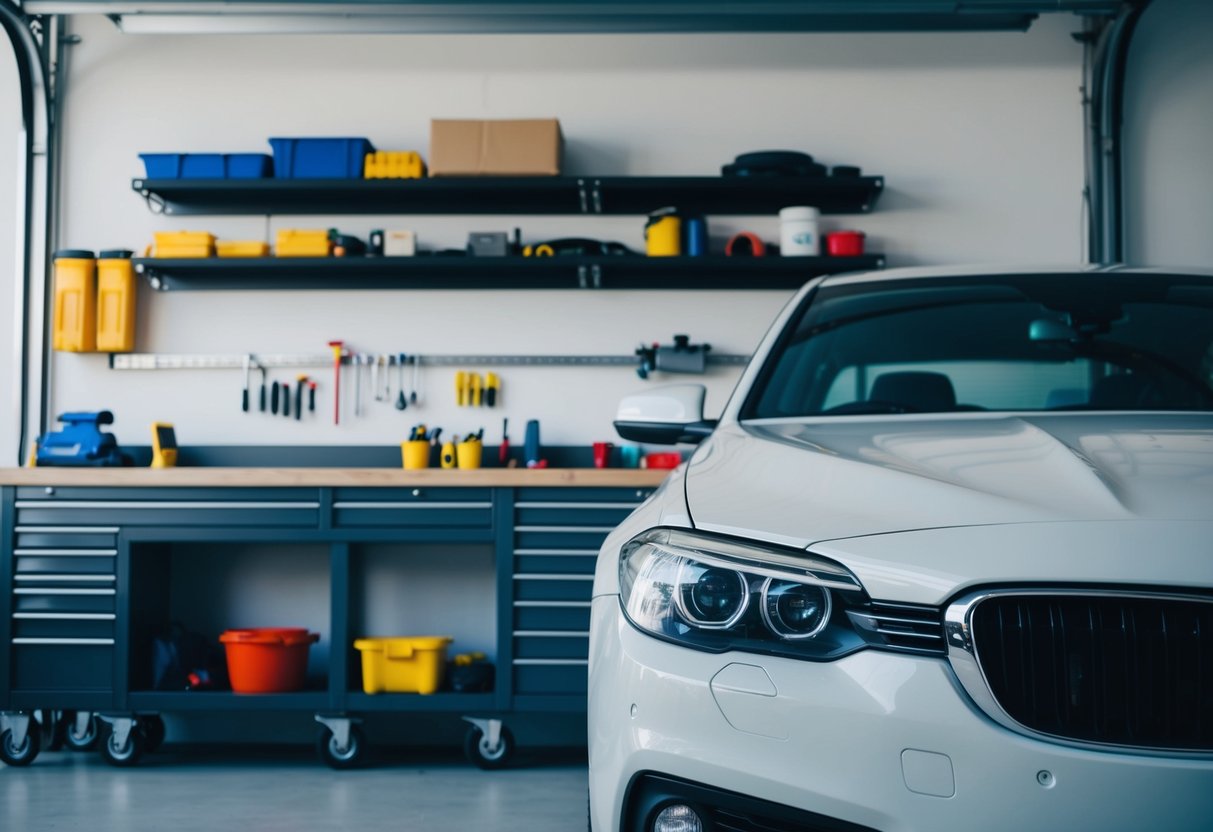
The Importance of Engine Maintenance
Maintaining your engine is crucial for vehicle longevity and efficiency. From regular air filter replacements to caring for various engine parts and avoiding contaminants, each step plays a vital role in keeping your engine running smoothly.
Regularly Replacing Air Filters
Replacing the engine air filter is essential for the health of the vehicle. The air filter keeps dust, dirt, and other pollutants from entering the engine. Over time, air filters become clogged, reducing airflow and decreasing performance. Efficient air filtering helps maintain optimal air-fuel mixture needed for combustion, ensuring better fuel efficiency and lower emissions.
Neglecting the air filter can lead to engine sluggishness and even damage, as contaminants can wear down internal components. Regular inspection and timely replacement of both the engine air filter and the cabin air filter can prevent this. Typically, air filters should be checked every 12,000 to 15,000 miles or as specified in the vehicle’s manual. A clean air filter equals a healthier engine and a smoother ride.
Caring for Your Engine Components
Proper care for engine components includes maintaining spark plugs, belts, hoses, and fuel injectors. Spark plugs ignite the fuel-air mixture, making them key to engine performance. Faulty spark plugs can lead to misfires, reduced fuel efficiency, and higher emissions. Regular inspection and replacement based on mileage and condition are recommended.
Belts and hoses are vital for the engine’s cooling and function. These parts should be checked for wear and replaced if any cracks or frays are observed. Ignoring these components can lead to overheating and significant engine damage. Fuel injectors, which deliver fuel to the engine, must also be cleaned and maintained to prevent clogging and ensure efficient fuel delivery.
Avoiding Engine Damage from Contaminants
Engine oil acts as a lubricant, reducing friction and wear. Contaminated or sludge-filled oil can severely harm the engine, leading to overheating and premature wear. Regular oil changes, using the recommended oil grade, help keep the engine clean and functional.
It is also important to keep the fuel system free of contaminants. Using quality fuel and replacing the fuel filter periodically can prevent debris and dirty fuel from affecting engine performance. Regularly checking and replacing oil and fuel filters is necessary to avoid contamination and ensure the engine runs smoothly. Preventative measures today mean fewer problems tomorrow.
Brake System Care and Maintenance
Proper brake system care is vital for vehicle safety and longevity. Regularly checking brake pads and rotors, maintaining brake fluid, and understanding braking’s impact on the drive train can extend the life of your vehicle.
When to Replace Brake Pads and Rotors
Brake pads and rotors should be inspected regularly. Worn-out brake pads can damage rotors, leading to costly repairs. It’s recommended to replace brake pads every 25,000 to 70,000 miles, depending on driving conditions and habits.
Rotors, on the other hand, may need replacement every 50,000 to 70,000 miles. They should be changed when you notice vibrations, squeaking, or reduced stopping power. Timely replacement ensures the brake system remains efficient and prevents damage to other components.
Regular Brake Fluid Checks and Changes
Brake fluid is essential for the hydraulic operation of the brake system. It should be checked at least once a year and replaced every two years or as recommended by the vehicle manufacturer. Contaminated or low brake fluid can lead to reduced braking efficiency and potential failure.
Signs of brake fluid issues include a spongy brake pedal, leaks, or a warning light on the dashboard. Regular maintenance and timely changes of brake fluid help maintain optimal braking performance.
Understanding the Impact of Braking on Vehicle Longevity
Braking impacts more than just the immediate stop of the vehicle. The brake system affects the overall drive train and can influence vehicle longevity. Aggressive braking can cause excessive wear on brake pads and rotors, leading to more frequent replacements and higher costs.
Moreover, proper braking technique increases the lifespan of not only the brake components but also the tires and suspension system. Smooth and steady braking ensures less strain on the entire vehicle, promoting longer-lasting brakes and a more balanced driving experience.